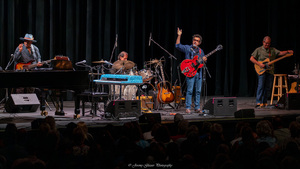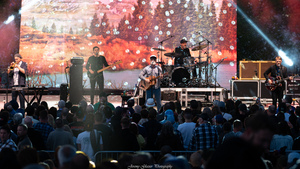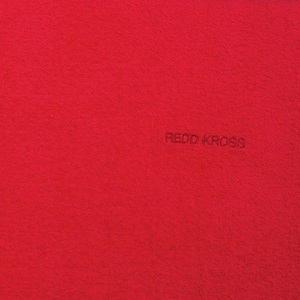
The Legendary Pink Dots
Seconds Late for the Brighton Line
ROIR
Pink Floyd never died; they simply moved to Amsterdam.
For Pink Floyd purists, the cult of few who feel that their Syd Barrett days are the only entries in their discography worthy of serious discussion, the Legendary Pink Dots have filled that psychedelic void for 30 years. Because of their relative obscurity, the Pink Dots have been sadly below the radar of Barrett’s devoted followers. Robyn Hitchcock may have gotten the “next Barrett” tag during his college-radio reign of the ’80s, but as whacked-out as his most adventuresome material was, the Pink Dots probed deeper into acid-washed rock. In fact, the Pink Dots leader Edward Ka-Spel picked up where Barrett left off, updating his brain-damaged folk by embracing the ambient electronics of krautrock, the oppressive gloom of Goth, and the existential angst of post-punk.
Like The Fall, the Pink Dots have kept to their singular, uncompromising vision into middle age. “Russian Roulette” is trademark Pink Dots: slow, glacial synthesizers; minimalist beats, and Ka-Spel’s detached, deranged mad-scientist vocals. It almost recalls the spare, icy grimness of Wire but minus the loud, angular guitars. The clock-ticking rhythms of “Endless Time” find Ka-Spel in a rare melodic mood and it’s the only track on the album that could possibly be marketed as a single. Elsewhere, the Pink Dots peel away layers of atmospheric dread, especially on the closing “Ascension,” which is over 13 minutes of synthesized bleakness.
When Ka-Spel’s black-planet outlook clicks, which it often does, as on “Hauptbahnhof 20:10,” the effect is hypnotic and darkly seductive.
The Legendary Pink Dots: http://www.thelegendarypinkdots.org












